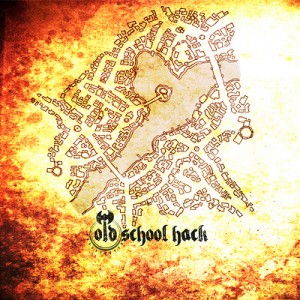 Old School Hack is a study in contrasts, as it attempts to balance old school sensibilities with modern, player-driven design ideas. On the one hand, players roll 6 stats and choose classes like thief, magic user, and elf (yes!). On the other hand, they get Awesome Points for being awesome, which they must use to level up.
Old School Hack is a study in contrasts, as it attempts to balance old school sensibilities with modern, player-driven design ideas. On the one hand, players roll 6 stats and choose classes like thief, magic user, and elf (yes!). On the other hand, they get Awesome Points for being awesome, which they must use to level up.
When OSH works, it’s beautiful: players are encouraged to do awesome, interesting things both in and out of combat. In our game, the goblin player who snuck around and attacked from the shadows was rewarded for that. The simple mechanics (roll d10s in combat; a d12 outside of it and add a modifier or two) resolves actions quickly and keeps the story moving.
The combat turn order is another thing of beauty. Each type of action (melee attack, ranged attack, movement, etc.) has a specific position in the turn order, and players use tokens to position themselves in that order. So, on any given turn, a character in a defensive position will always go before characters who fire ranged weapons, who will fire before those using melee attacks. PCs are not relegated to the beginning or the end of nearly every turn.
But that simplicity is a drawback. At first level, players’ mechanical options are limited, with only one or two specific combat actions (though they can use more by spending a lot of Awesome Points). Fights quickly become slugfests, with characters fighting the same way every turn. Players have to be very imaginative all the time.
To which some might say: okay, play with players who can do that. Agreed. However, it can be tiring to play a system that provides so few hooks for your character. Houses of the Blooded — a system, to be clear, I’ve read but haven’t played — is almost mechanic-free, but provides tons of hooks on which to hang a character’s personality traits.
Granted, this is a feature common to old-school systems, where PCs start weak. However, fantasy role-playing has moved beyond this trope. Most of us don’t want to start that far back in our characters’ histories. We don’t want to start with John McClane’s first day on the police force; we want to start with the assault on the Nakitomi building.
So, Old School Hack is a system for players who can build a vivid character and want the system to get out of their way.



